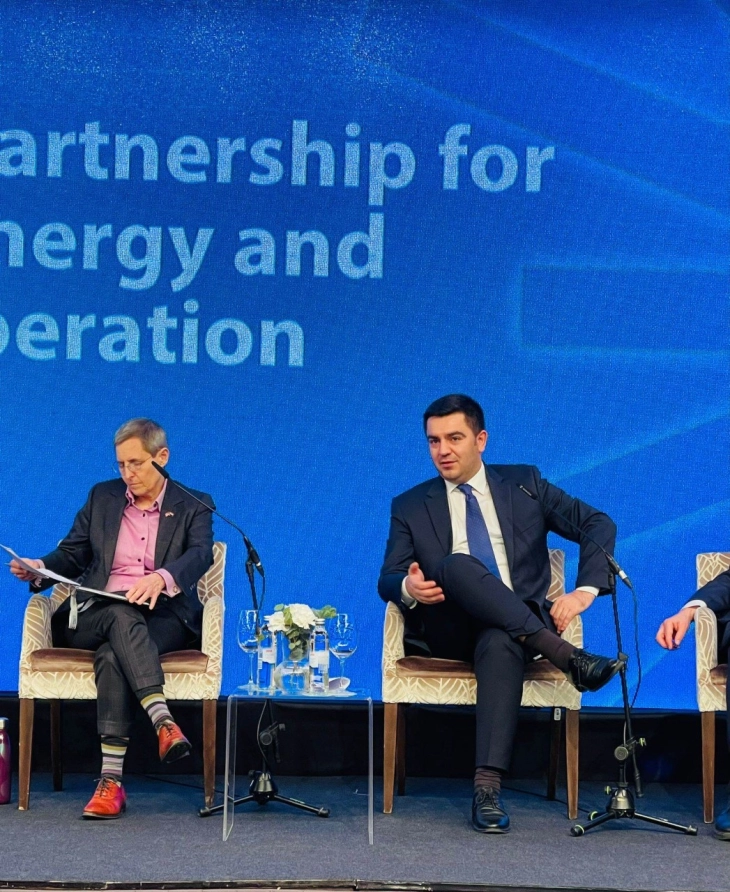Bekteshi: Working on construction of safe energy system to speed up energy transition
- North Macedonia is going through massive changes in its energy infrastructure. Huge renewable energy investments are being realized and will soon dominate energy production. The system of natural gas distribution is in development of new interconnectors with neighboring countries.
- Post By Nevenka Nikolik
- 15:18, 2 March, 2023

Skopje, 2 March 2023 (MIA) – North Macedonia is going through massive changes in its energy infrastructure. Huge renewable energy investments are being realized and will soon dominate energy production. The system of natural gas distribution is in development of new interconnectors with neighboring countries.
A distributive gas network will spread to the biggest cities. The gas distribution networks will be designed with the biggest cities and the systems for central heating and cooling are planned for the cities with denser populations. As a result of these investments and energy infrastructure changes, the state has an increased need for smart measuring devices, AI-run software and capacities to store power from renewable sources, according to Minister Kreshnik Bekteshi on Thursday, during the panel discussion titled Critical Infrastructure within the Ministerial Meeting for Partnership for Transatlantic Energy and Climate Change (P-TECC), held in Zagreb, organized by the Ministry of Energy of the USA and the Ministry of Economy and Sustainable Development of the Republic of Croatia.
As the Minister said during the panel discussion, North Macedonia is seriously committed to the energy transition and diversification of supply sources and realization of the green scenario which stipulates the full closure of energy capacities that run on coal by 2035.
“Our energy strategy stipulates the urgent construction of renewable energy projects so that solar, wind and water plants can replace coal and satisfy the future needs for electricity of this country. Our goal is to have the share of renewable sources of electricity in North Macedonia reach 50% before 2030,” Bekteshi said.

The Minister of Economy said that the electrical network of North Macedonia will keep facing challenges in its transition towards clean energy production.
“We are installing an operating software that is fully compliant with international cyber-security requirements and allows for better planning, scheduling and operating variable capacities of renewable energy sources and energy storing capacities. The Energy and Water Services Regulatory Commission is preparing a surveillance system for the cyber-security capacity, particularly for the subjects considered critical infrastructure. We are working on amendments to the Law on Energy to apply international standards to cyber-security of the energy capacities so that we can create a safer digital ecosystem,” the Minister said.
He added that the country has some things left to do in this direction, including the development of a new Law on Computer Safety and transposing EU directives. Given that our energy networks are becoming more integrated, the protection of critical infrastructure becomes a matter of cross-border cooperation.
“There are many options for us to look at for regional cooperation, such as a joint set of standards throughout the region for energy infrastructure, identification of the regional critical infrastructure and the way it’s protected, stress tests to identify regional weaknesses where priority investments should go etc.,” said Minister Bekteshi in his address. dk/nn/
Photo: Ministry of Economy







